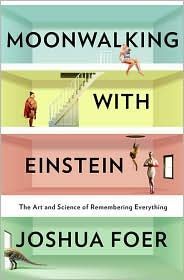
Moonwalking with Einstein The Art and Science of Remembering Everything
Citing costly memory-related inconveniences suffered by average individuals, a science journalist chronicles his own struggles with chronic forgetfulness and his life-changing year in memory training, in a guide that shares historical lore and ancient memory techniques.
Reviews
Timeo Williams@timeowilliams
Stef Hite@stefhite
Tanner Christensen@tannerc
matej yangwao@yangwao
Rohit Arondekar@rohitarondekar
Sarah Schumacher@smschumacher
Wynter@wynter
Matt Stein@mattstein
Alex @alexb
Raihan Khan@raihan
Jk Jensen@jkj
jack morris@jxm
Rebeca Keren Nuñez@rebecanunez
Cindy Lieberman@chicindy
Udit Desai@uydesai
ANDREW BRYK@andrewbryk
Chris Aldrich@chrisaldrich
Jeni Enjaian@jenienjaian
Marie Rogowski@iamcurie
Rebeca Keren Nuñez@rebecanunez
Adam@adam
Ben Blumenrose@blumenrose
Pim Van@pim
Michael Hessling@cherrypj